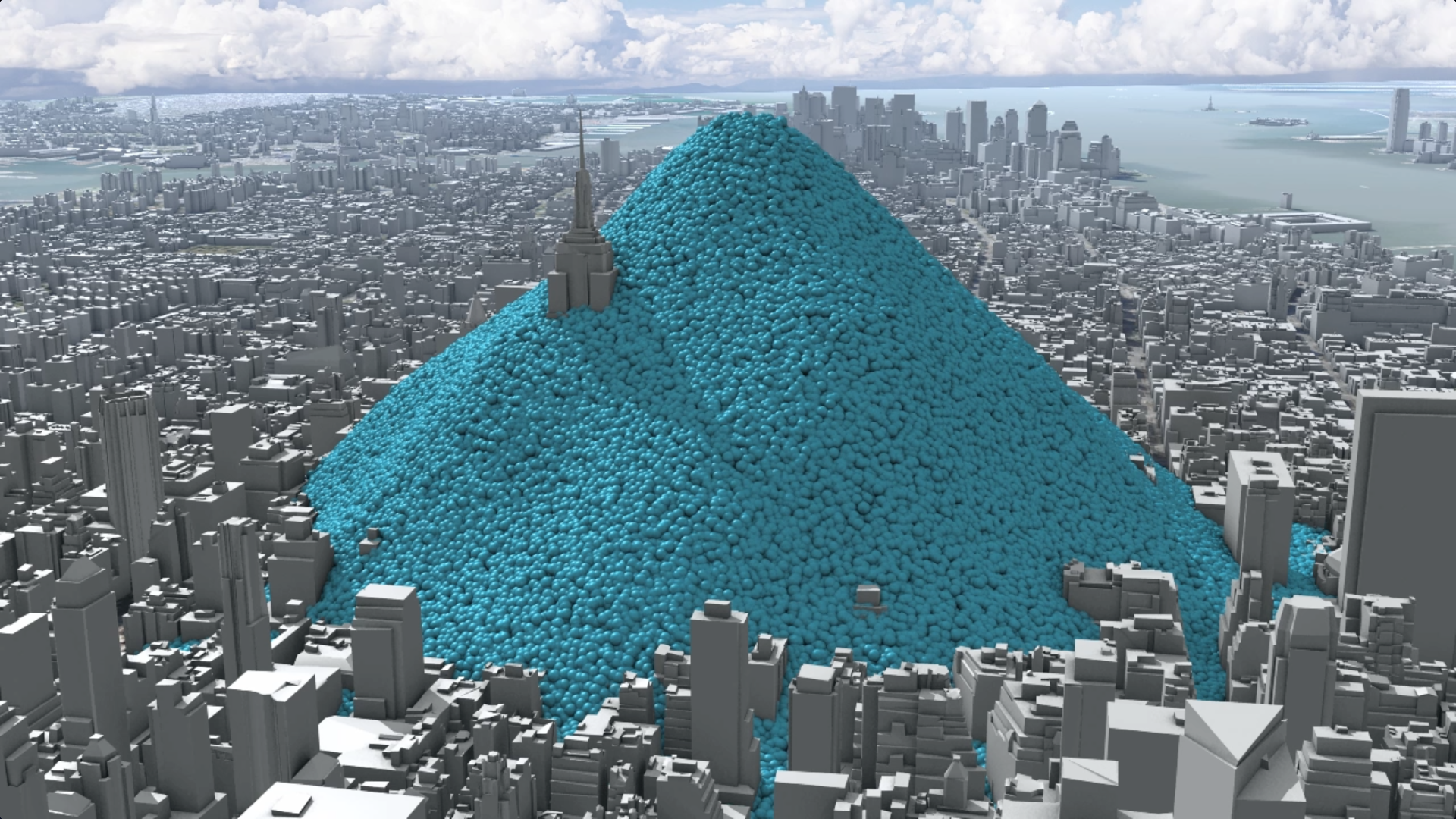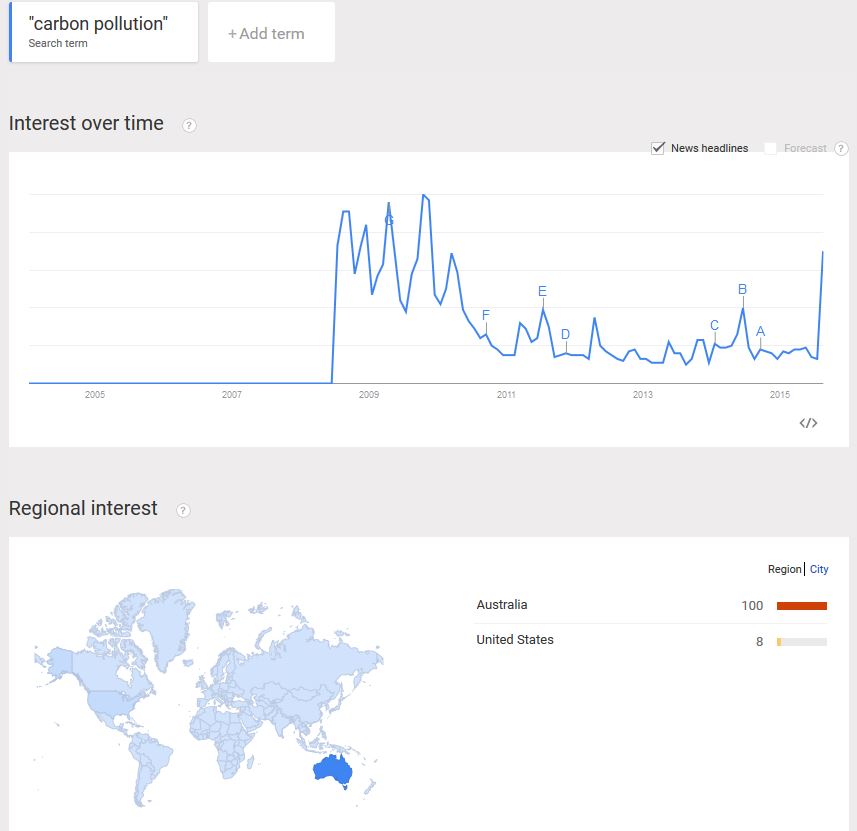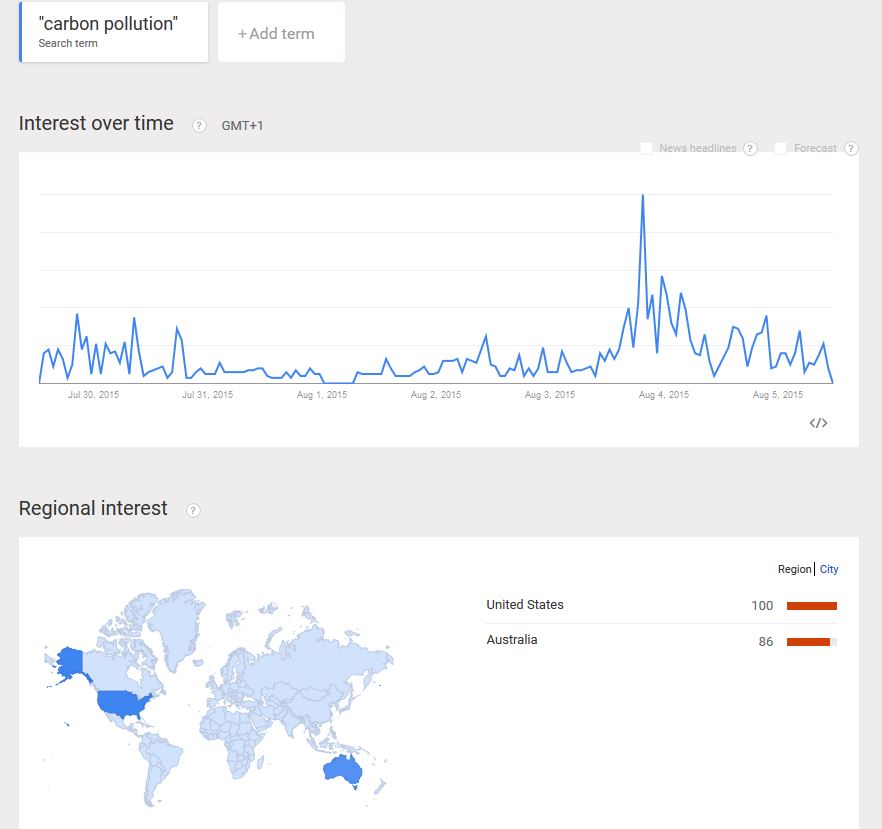
August 6, 2015, by Brigitte Nerlich
Carbon pollution
As a linguist I have been interested in ‘carbon compounds’ for a long time, that is, phrases that combine the word ‘carbon’ with other words to form new units of meaning. Using lexical carbon compounds, we can talk about anything, from ‘carbon awareness’ to ‘carbon zealots’. ‘Carbon pollution’ is one of these compounds which pack a lot of information into a few words and might make us think and act (or not act) in certain ways. In the case of ‘carbon pollution’, we are dealing with a verbal short-cut to thinking about the ever-increasing and, in the end, polluting, emissions of greenhouse gases, such as carbon dioxide (the ‘carbon’ in many ‘carbon compounds’) and methane, which contribute to global warming or climate change.
This week ‘carbon pollution’ has been in the news, as President Obama announced his Clean Power Plan, which “sets out tighter curbs on dirty coal and bigger investments in renewable energy” (see BBC news article). The plan calls for new ‘carbon pollution standards’ and new ‘carbon pollution reduction goals’ (these are examples of nice three- and four-word carbon compounds; and there are others which are equally juicy, such as Washington’s ‘Carbon Pollution Accountability Act’).
President Obama’s plan to reduce carbon emissions from coal-fired power plants, i.e., carbon pollution, was heralded by many as a breakthrough in the ‘fight’ against climate change, but berated by some as too little too late. Yet others actively oppose it, not surprisingly. The discussion about the pros and cons of these planned ‘carbon pollution standards’ reminded me of one of my favourite carbon compounds, namely ‘carbon indulgence pixie dust’. This compound was used about a decade ago, when carbon offsetting was still seen as a credible climate mitigation tool, but seen by some as being akin to medieval indulgences. In case of ‘carbon pollution standards’ many hope that they won’t turn to dust, pixie dust included.
All this made me think. When did people first start to talk about ‘carbon pollution’? And what were the effects of such talk? Did it make people think differently about climate change then and does it make people think differently now? In this context, we have to remember that, like ‘greenhouse effect’, ‘carbon dioxide’ has a good and an evil side. While the greenhouse effect keeps the earth nicely warm and habitable, too much of it might result in overheating it and making it less habitable. Carbon dioxide provides food for life on earth, but too much of it might pollute and destroy it. ‘Carbon pollution’ focuses attention on the bad aspects of both the greenhouse effect and carbon dioxide. When did we first begin to pay attention to this new twist in the story of the earth’s atmosphere?
Carbon pollution 1989
It seems we first started to talk about carbon pollution at the end of the 1980s when global warming began to discussed as a political issue. In English speaking news, the compound was first used in an article entitled “Research into alternative power has waned” (Globe and Mail, Canada, 20 March, 1989), which said: “Dr. Brooks sees ‘no reasonable progress before the turn of the century. There’s too much oil, cheap to get and cheap to move.’ It appears that aggressive research and development of biologically based fuels will come only with a combination of higher petroleum prices and increased concerns about carbon pollution.” We have, of course, seen investment in biologically based fuels since then, but no abatement of ‘carbon pollution’. Interestingly, the title of the article could be used just as well today as in 1989 in relation to biofuels!
The same year an article for another Canadian newspaper was entitled “Top priority is to develop a clean fuel” (The Toronto Star, 12 August) and it stated: “Physicist David Suzuki revealed on the CBC documentary, It’s a matter of survival, that carbon pollution, primarily resultant from the burning of fossil fuels, has begun to increase the temperature of the Earth toward a level which could devastate global agriculture in only a few decades. Environment Minister Lucien Bouchard has agreed with scientists that we no longer have the option of deferring action against the greenhouse effect, but must act immediately. But is he sincere?” The title of this article too could be used to report on this week’s ‘clean power plan’.
Carbon pollution 2008
I didn’t analyse all the articles that have used the compound ‘carbon pollution’ since 1989, but instead took a short-cut. I searched Google Trends for how this compound has been used since 2004 (the first year for which Google Trends are available). As the following figure shows, the phrase became a matter of concern for Australians in around 2008.
This was the time when the then Australian Government tried to implement a Carbon Pollution Reduction Scheme, an enterprise that eventually failed and was abandoned in 2010: “The objective of the Carbon Pollution Reduction Scheme was to meet Australia’s emissions reduction targets in the most flexible and cost-effective way; to support an effective global response to climate change; and to provide for transitional assistance for the most affected households and firms (Department of Climate Change, 2008, 14)”.
Carbon pollution 2015
After 2010 interest in carbon pollution waned. However, as the figures show, it increased a bit in both Australia and the US over the last few days after President Obama’s announcement, but only to dissipate again quite quickly (I searched on 5 August).
So far ‘carbon pollution’ hasn’t achieved the status of a meme like ‘climategate’ for example, as examined in this blog post. The question is: Will President Obama’s intervention nevertheless achieve an impact on current climate change debates, especially in Paris this year, or will we look back at 2015 in a quarter of a century and see the same pattern repeat itself that we can observe between 1989 and now: namely, some talk, some interest, a little bit of action, but no dent in ‘carbon pollution’? Ask me again in 2040, if I am still around!
In the meantime, there might be a shift in language use that needs to be observed alongside monitoring climate change and attitudes to it, from using rather abstract carbon compounds to using more concrete pollution compounds, such as carbon pollution, air pollution, water pollution, land pollution….and coal pollution (which doesn’t mean the coal is polluted!).
Image: New York City’s daily carbon dioxide emissions as one-tonne spheres. _ Flickr – Photo Sharing!
Previous Post
Ants and the art of science communicationNext Post
Infectious futuresNo comments yet, fill out a comment to be the first



Leave a Reply